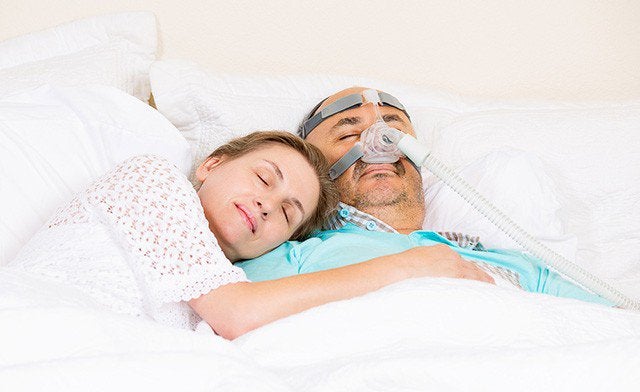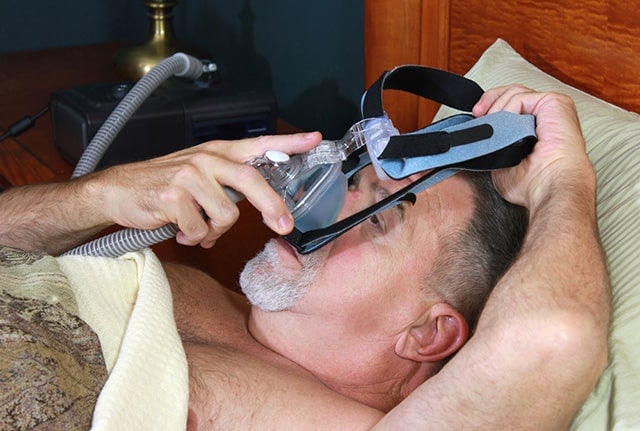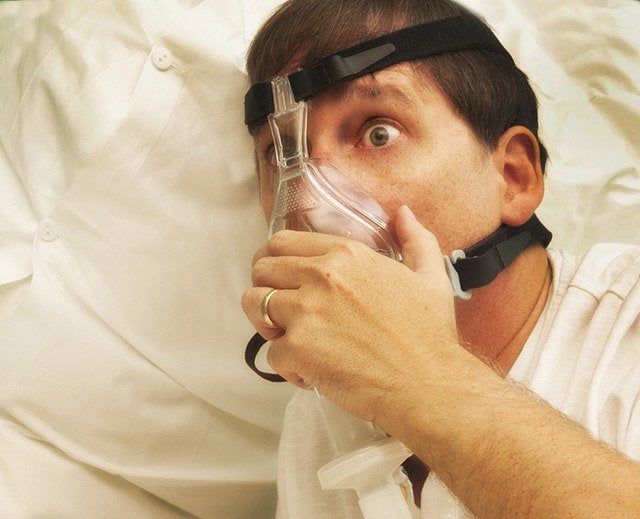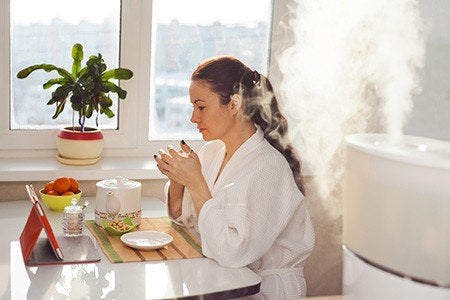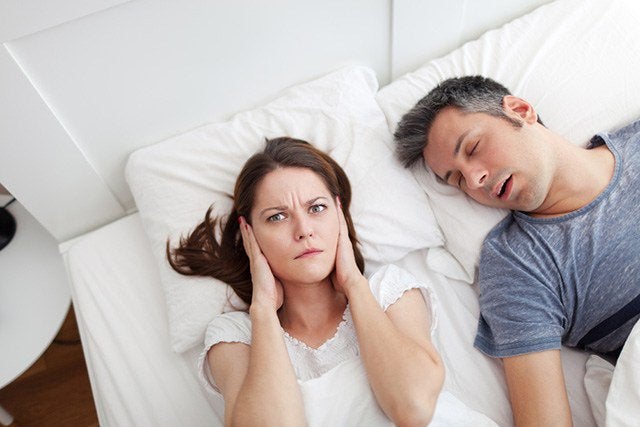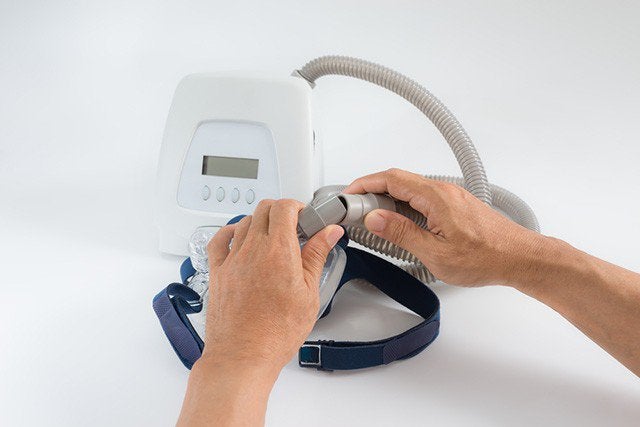CPAP machines are a common prescription to treat sleep apnea, a sleep disorder that is marked by continual interruptions to a person’s breathing through the night. Although considered a safe machine to use, it does have some common side effects worth knowing about – especially to a new user. There also are some danger associated with its use, although these are almost completely within your control.
If you have considered the use of a CPAP machine, or are new to the use of one, this article explores CPAP machine side effects and dangerous worth noting. Having this information can help you make decisions about how you use it, maintain it, and troubleshoot any issues you may be having.
CPAP Machine Use
Continuous Positive Air Pressure (CPAP) machines are the most effective treatment for sleep apnea, a potentially dangerous sleep disorder that is defined by a continual starting and stopping of breathing through the night. Waking tired despite having enough sleep, loud snoring, and a general malaise are all indicators of an interrupted sleep that could be caused by sleep apnea. If you are concerned that this may be a reason for your poor nights, a doctor can test and diagnose you with certainty.
How a CPAP Machine Works
A CPAP machine is effectively a small compressor. It draws in room temperature air and pressurizes it for a continual flow to provide what is needed to keep breathing obstructions from occurring. It filters air and many also provide a humid air source through the use of a warm water humidifier tank. This air is transported to a sleep mask worn by the sleeper via a hose.
Available only by prescription, you must first be diagnosed with sleep apnea to receive this treatment. There are multiple types of masks to address both your needs and comforts, as well as various styles and models of machines for both technology and transport. Those who suffer from sleep apnea may have up to 100 interruptions a night, and these machines are very effective in reducing, or even stopping, these incidents from occurring altogether.
You may be interested in: How to Use a CPAP Machine
Common Side Effects of CPAP Machine Use
As with anything that is designed to be used regularly, there are often side effects and common problems associated with this use. This is especially true for new CPAP machine users. The following explain those issues that can often be addressed and corrected so you can have a more comfortable sleep experience.
– Mask Irritation, Leaks, or Pressure Sores
Often, mask leaks, irritation, or discomfort is caused by the wrong size mask. There different style of masks, as well as many different sizes to fit your sleep style, and your doctor can help you get the best fit. If you find that what was initially comfortable is not through the night, then be sure to ask for something new to try. Keeping your mask clean will also help with irritation and a proper seal.
– Trouble with Mask Use/Claustrophobia
Some people struggle with using a mask through the night simply because it is something new. Others may struggle with a feeling of claustrophobia due to having something on their face they are not used to. As mentioned, there are many different styles – some of which are less constrictive than others, so be sure to speak with your doctor. But one way to get used to the feel of the mask it to give it time and to wear it when relaxing in bed while reading, or while watching television to become more accustomed to it.
– Forced Air Intolerance
Some people cannot tolerate the feeling of air being blown towards them, which may increase irritability or even feelings of claustrophobia. Luckily, most machines come with a RAMP adjustability feature which allows you to set a control on the machine for a gradual increase of airflow over a period of time. This can acclimate you to the feeling and many times people will already be asleep before it reaches its maximum level.
– Dry Nose and Mouth
It is pretty common for a constant flow of air to create a drier atmosphere. This is why almost all machines either come with a built in warm air humidifier, or an optional humidifier, in order to moisturize the air you breathe in. These are generally adjustable to allow you to get the comfort you need. The use of a nasal saline spray prior to bed can also help.
– Removal of Mask in the Night
If you find that you are unintentionally removing the mask through the night, you may want to invest in a machine that has an auto on/off feature and alarm to draw your attention to the problem. You cannot control your movements while you sleep, but waking to replace the mask is more likely less disruptive than suffering through constant bouts of waking and sleeping caused by sleep apnea.
– Noise Intolerance
CPAP machines are considered very quiet and run under 30 dBA. If you feel there is a noise occurring that shouldn’t you may want to have your machine checked to ensure it is running properly. If you simply are sensitive to the sound of the machine, then you may want to try soft earplug, or even the use of a gentle white noise sound machine to help mask it.
CPAP Machine Maintenance
CPAP machines need regular cleaning maintenance to not only run properly, but also for your general health. Tubing and masks exposed to air flow and humidity are can create environments ripe for bacterial growth. The natural oils and dirt from skin can also build up over time- so knowing what to do for basic machine care is very important.
On a weekly basis you should do the following, with more frequent cleanings suggested if you have been sick. You can also wipe down masks quickly after each use with a gentle soap and water wipe to avoid dirt and oil buildup which can contribute to skin irritation.
- Unplug and disassemble the machine, wiping down the external parts with a warm, damp cloth.
- Submerge and soak mask, headgear, tubing, and any connectors in a basin of mild, soapy warm water. Rinse and dry.
- Rinse out humidifier tank (if there is one) with warm soapy water and allow to air dry.
- Follow manufacturer’s instructions for filter replacement
You also should replace tubing annually, or even more frequently if you feel it has become difficult to clean, or has been compromised.
Dangers of CPAP Machines
It is usually when your machine has not been cleaned or maintained that dangerous situations may occur. Some common warning signs that this has become a problem is if you keep getting sick or are suffering from headaches on a regular basis. Mildews, mold, and bacteria can easily be harbored in your machine. And if you have been sick, those germs may also linger and attack your immune system once again.
If you smell anything that is not fresh smelling, smells like mildew, or is otherwise not pleasant, look to the pathogens that are most likely growing in your machine. A clean, dry machine is not a good host to things that like to inhabit dark, moist environs, so be sure to dry your machine out well before putting it back together.
– Sinusitis, Meningitis, and CPAP Machines
Unrelated to the cleanliness of the machine is a rare, but possible, dangerous effect of its use with those who suffer from regular bouts of severe sinusitis. Sinusitis is the name used to describe the inflammation of the lining of the sinus cavities. This is a fairly common condition, usually caused by a virus that clears itself up within a few weeks.
Severe sinusitis is marked by a more chronic condition, and can turn into bacterial meningitis when left unattended. It is believed that the constant pressure of a CPAP machine creates additional pressure and erosion on these sinus cavities when inflamed, and increases the risk of bacterial meningitis occuring. Suggestions to treat with surgery, rather than a machine, have been suggested. If sinusitis is a regular problem, a doctor should be aware as part of an overall treatment of sleep apnea.
You may want to check out: Best Mini CPAP Machines
Conclusion
CPAP machines are overall a safe machine to use, and outside some initial discomforts and reasonable adjustment periods, are incredibly effective in their treatment of sleep apnea. Regular cleaning and maintenance is an absolute must for health reasons, and unless you suffer from acute sinusitis, the hazards of a CPAP machine are completely under your control.
Be sure to regularly wash your machine parts and replace filters and hoses as suggested, and allow everything to air dry to ensure a clean healthy machine environment. If you have any questions or concerns with mask fit, noises, or machine use, be sure to talk to your prescribing doctor to help troubleshoot any issues you may be having.

